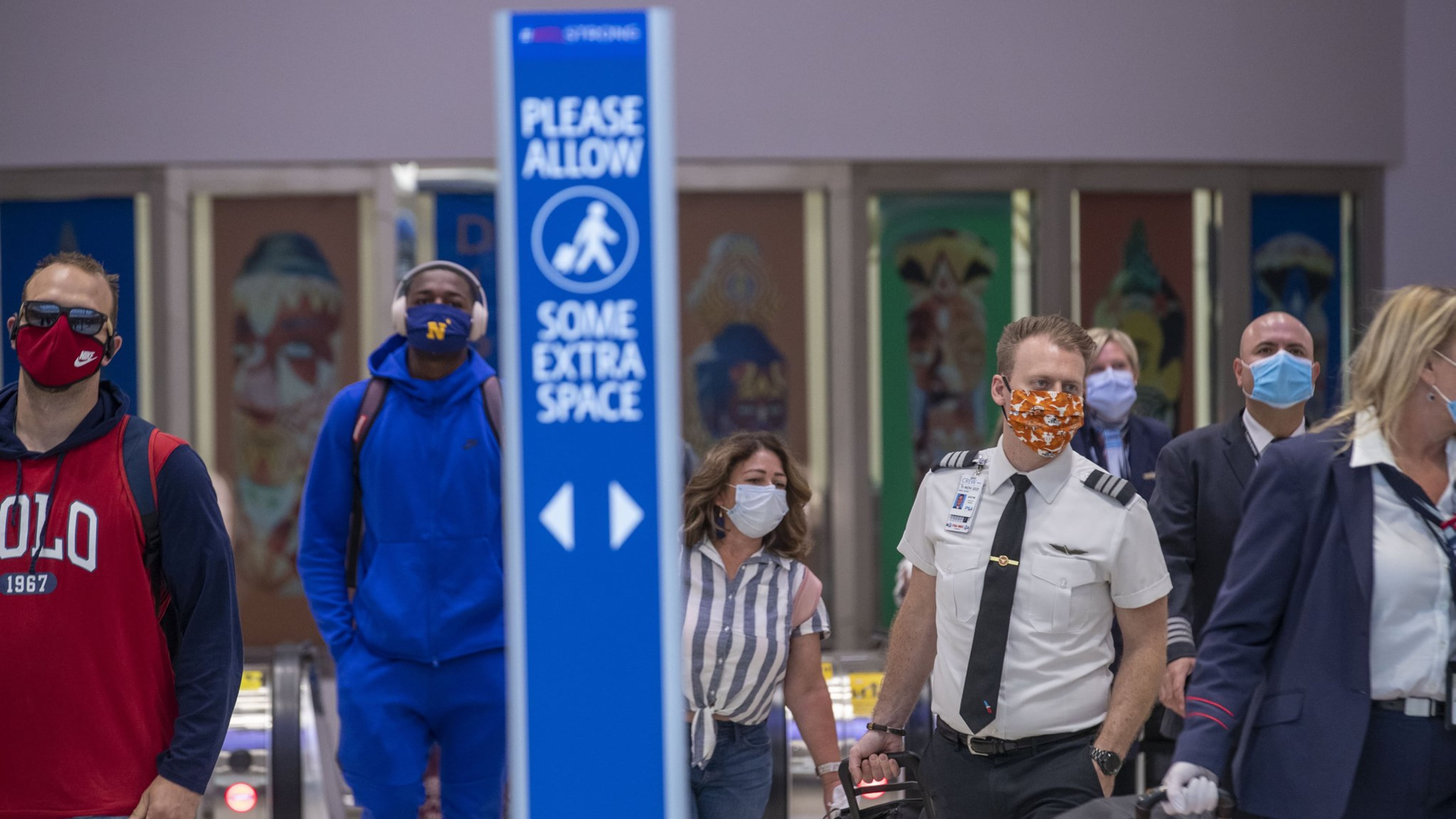Virus complicates business staff decisions, economic recovery

Businesses reduced workforces almost overnight in March as as they scrambled to preserve enough cash to keep operating during the coronavirus pandemic.
The choppy recovery has made it difficult for companies like Atlanta-based Delta Air Lines to develop and follow a clear plan of how and when to bring employees back. Delta’s problem is exacerbated because it is trying to return employees to work while also paring back its workforce for a more austere economic future.
Workers face their own juggling acts, from balancing their own safety to finding childcare when called back. The uncertainty is contributing to the slow economic recovery.
Delta is among the hardest hit local companies, with air travel declining more than 95% from March to mid-April. It cut an unprecedented 85% of its flights and quickly asked workers to take unpaid leave to cut back staffing. More than 41,000 employees agreed, taking leaves of one month to one year.
By June, the airline was bringing some planes back into service, with expectations for a continuing recovery in July. CEO Ed Bastian voiced plans to add 1,000 flights back to the schedule in July and again in August.
But attempts in June to restart routes from Atlanta to places like Turks and Caicos, St. Maarten, Aruba and Bermuda were scuttled, amid continued challenges of uncertain demand and travel restrictions. And by late June, a resurgence of the virus began to weigh on optimism for a continued recovery.
In mid-July, Delta announced it would scale back plans for August.
Many Delta employees have seen their hours and pay cut. Some have worked through rapidly shifting operations in airports and on planes, while others stay home on unpaid leave waiting out the airline’s challenges. More than 17,000 signed up for buyouts and early retirements to leave the company altogether.
In asking for more employees to sign up for unpaid leave, buyouts and early retirement, Bastian told employees repeatedly that the airline was overstaffed and needed to become smaller.
But what happened in July whipsawed flight-attendant staffing.
Delta added flights at the same time that employee absences increased as the number of COVID-19 cases rose. That left the airline with a temporary shortage of flight attendants, leading to flight cancellations.
“The customers affected were rebooked for later flights with our apologies,” said Delta spokesman Morgan Durrant.
The airline asked flight attendants to pick up additional trips, and some came back early from unpaid leaves and vacations. Delta’s senior vice president of in-flight service Allison Ausband called it “a July issue only” and looked forward to a more stable August.
The opposite issue of overstaffing in the long term continues. As of this month, Delta’s workforce has been reduced by 20% to around 75,000 employees, as the company transforms “into a smaller, more nimble airline,” CEO Ed Bastian wrote in a memo.
Ausband also said in a memo that the company still needs 3,000 more flight attendants to take unpaid leave, reduced schedules or temporary assignments in other departments such as catering.
The problems from staffing fluctuations are not isolated to airlines. Hartsfield-Jackson general manager John Selden said this month that as airport restaurants and shops reopen, “some of our concessionaires and retail outlets were having trouble getting their help back,” after workers were furloughed or laid off.
Some who used to work at the airport in food and beverage outlets are concerned about their health.
“It’s unsafe right now,” said Rodney Watts, who worked as an overnight supervisor for HMSHost at Hartsfield-Jackson until he was laid off in March. One of his colleagues who returned to work “complains every day because she says it’s unsafe.”
While attempts at socially distancing can help, “as small as those stores are, I can’t even see that” it’s possible, said Watts, who has Type 2 diabetes.
The ups-and-downs of the recovery at Delta and the airport mirror what’s seen at other companies across a number of industries.
Staffing shortages are likely in healthcare as the pandemic progresses, the Centers for Disease Control and Prevention warned in July. Some may contract the virus or need to quarantine after being exposed to it, while others may need to take care of family members.
News reports have already pointed to shortages of healthcare workers in a number of cities as well as staffing shortages at the Houston Fire Department, the Pittsburgh bus service, in Baltimore trash pickup, and at a California federal prison.
As some schools go back into session digitally or in person, employers may also need to offer more flexibility to working parents who face even more responsibilities. In Cherokee and Paulding county schools, some teachers who started the year in person are having to flex back to teaching from home after COVID-19 outbreaks.
“As companies begin to bring employees back to the workplace, daycare issues return and parents who continue working from home face burnout as they try to be a productive employee, daycare provider, and teacher at the same time,” said Andrew Challenger, senior vice president of staffing firm Challenger, Gray & Christmas Inc., in a written statement.
Along with reassignments and training to fill positions for the work left to be done in the wake of departures, other issues can crop up with such large staff cuts.
For example, Fox Rothschild aviation attorney Morgan Campbell said during a webinar that managers should check how layoffs or absences have affected key staff, such as those who handle emergency preparation and responses.
Those responsible for convening emergency response teams should “check on your team and make sure everybody is still there, with all the furloughs and everything else,” he said.

